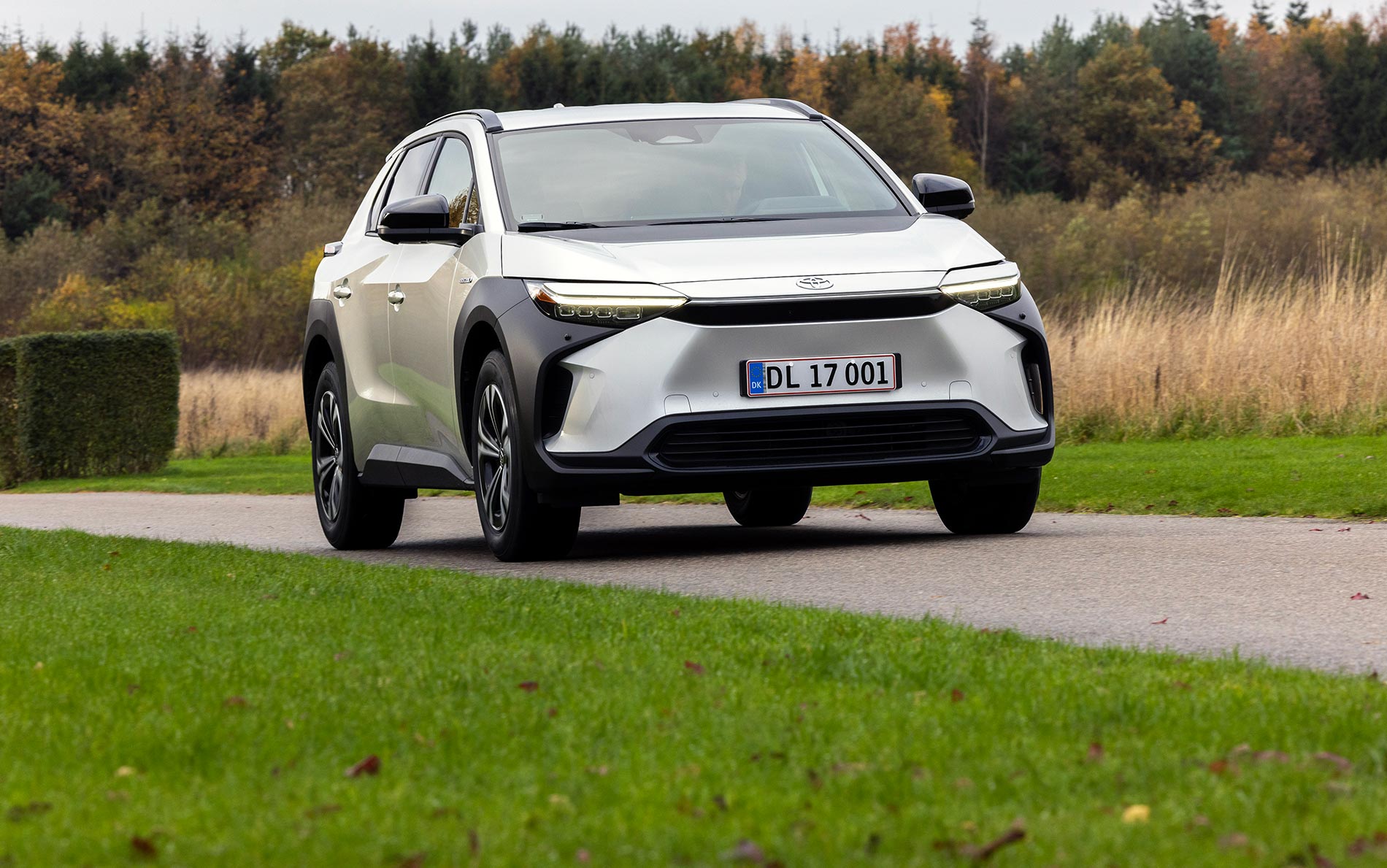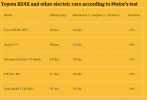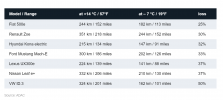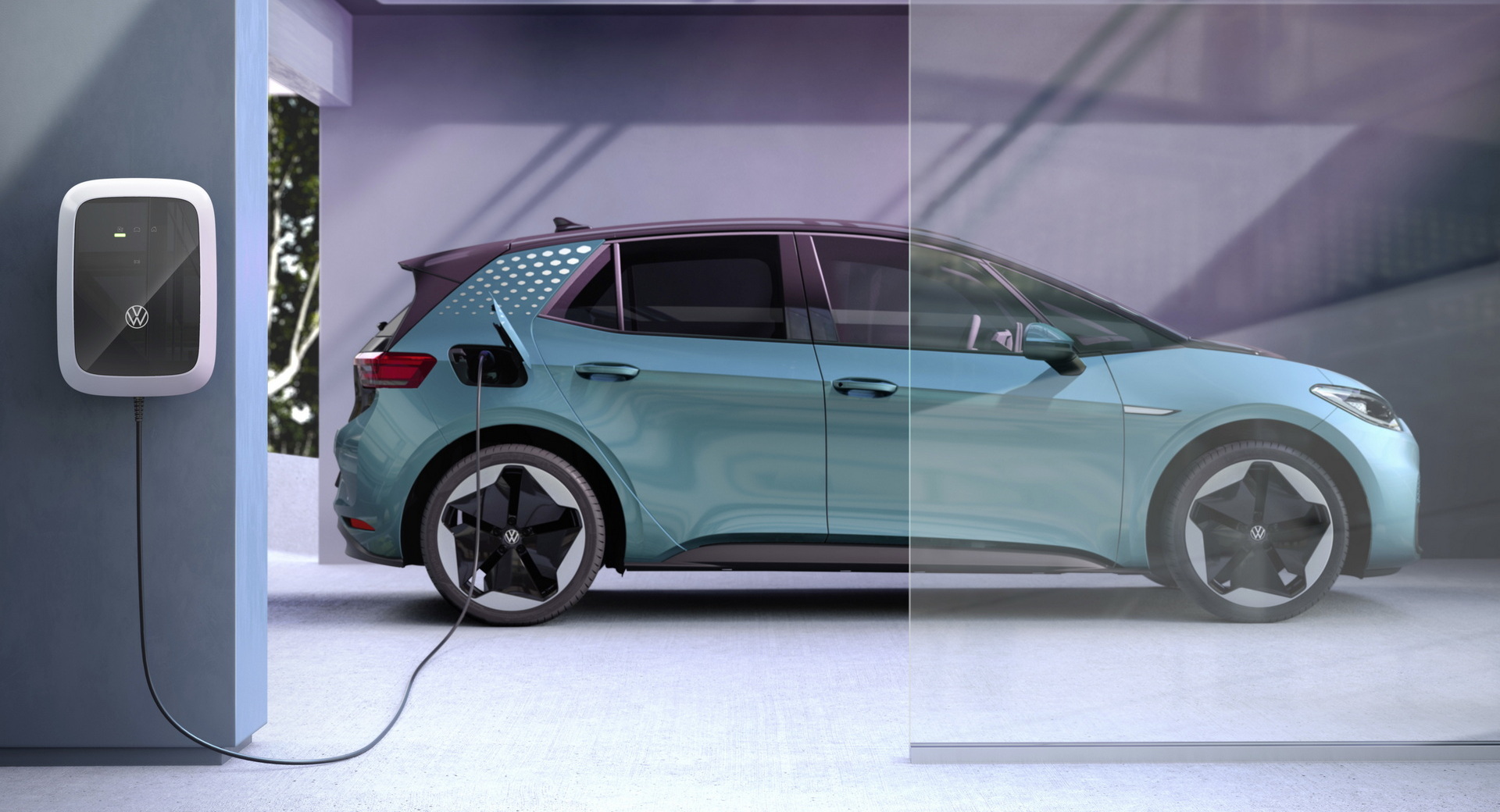Not great things happening - Toyota has given this vehicle to media to drive in past week in Europe.
Some of the media will be EV media that is used to driving BEV vehicles, so they will test range, charging, and other things that BEV owners want to know.
It seems like Toyota built BEV for their Engineers and not for their customers. This is European BZ4x with Panasonic batteries
- After 80%, charge speed at DC charging is under 9 kw, which is impossible to use during trips. Every vehicle slows down, but it is around 50kw at 80% not 7kw. Usually vehicles slow down to 9kw well, well after 90%.
- There is a huge buffer at 0% displayed, up to 10% extra range.
- Not great efficiency either. So one of the largest deviations between WLTP and tests that specific Norwegian mag is conducting.
Between 0% and 80%, vehicle is using 62 kwh of battery.
Meaning on trips, your BZ4x behaves like a city BEV.
Toyota stopped media drives after this became clear and all media started reporting on it. They released cars to the media back on Friday, nobody knows what did they do, if anything.
Essentially avoid buying this unless there are some huge changes to the way they handle battery, as this is not competitive with anyone. I mean yes, you can have 10 year warranty on the battery if you create the system where it is almost impossible to to use more than 65% of battery.

 www.bzforums.com
www.bzforums.com
Some of the media will be EV media that is used to driving BEV vehicles, so they will test range, charging, and other things that BEV owners want to know.
It seems like Toyota built BEV for their Engineers and not for their customers. This is European BZ4x with Panasonic batteries
- After 80%, charge speed at DC charging is under 9 kw, which is impossible to use during trips. Every vehicle slows down, but it is around 50kw at 80% not 7kw. Usually vehicles slow down to 9kw well, well after 90%.
- There is a huge buffer at 0% displayed, up to 10% extra range.
- Not great efficiency either. So one of the largest deviations between WLTP and tests that specific Norwegian mag is conducting.
Between 0% and 80%, vehicle is using 62 kwh of battery.
Meaning on trips, your BZ4x behaves like a city BEV.
Toyota stopped media drives after this became clear and all media started reporting on it. They released cars to the media back on Friday, nobody knows what did they do, if anything.
Essentially avoid buying this unless there are some huge changes to the way they handle battery, as this is not competitive with anyone. I mean yes, you can have 10 year warranty on the battery if you create the system where it is almost impossible to to use more than 65% of battery.
was completely empty and had to be towed away. They drove it on country roads when the display said there were 0km left. They managed in this instance an extra 40km in range. After that 40km, the car would not drive faster than 30km/t. They managed another 2km until the battery was completely empty.
He then charged the battery from 0-100% for a total of 67.15kWh. It took 32 min to charge from 10%-80%. After 80%, the charging speed dropped to under 9kw. In total it took 2h 17m to charge to 100%.





